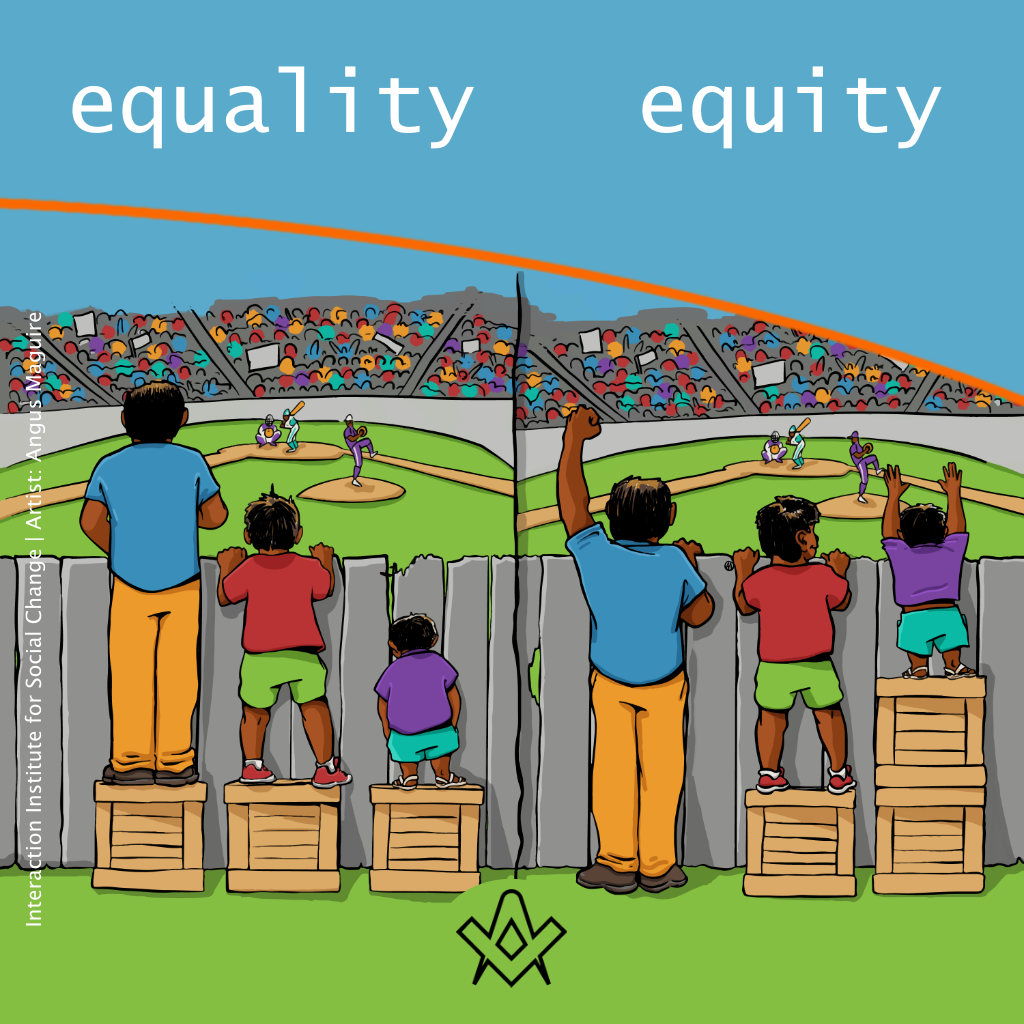The first obligation of equality is equity.”
– Victor Hugo
Definitions of Equality vs Equity –
Equality: the state of being equal, especially in status, rights, or opportunities.
Equity: the quality of being fair and impartial.
The natural condition of human beings in the world is inequality. Every man comes to this world unequally at birth in different socioeconomic conditions, being also endowed by nature with different intellectual capacities and physical characteristics.
Both in the microcosm and in the macrocosm, inequality rules as a natural law.
The human condition is a natural state of inequality, hence the phrase contained in the Magna Carta of some countries that reads:
men are born equal in dignity and rights
This is a beautiful ideal to be achieved, since the recognition and guarantee of the dignity and rights of the human person have always been subject to the will of those who hold true power in a society or country, as has been demonstrated in the course of human history.
The study of the phenomenon of power throughout the history of humanity has taught us that, as the political philosopher Niccolò Machiavelli (1469-1527) would point out, “man is evil by nature”. In this same sense, the English philosopher Thomas Hobbes (1588-1679) warned that “man is a wolf to man”.
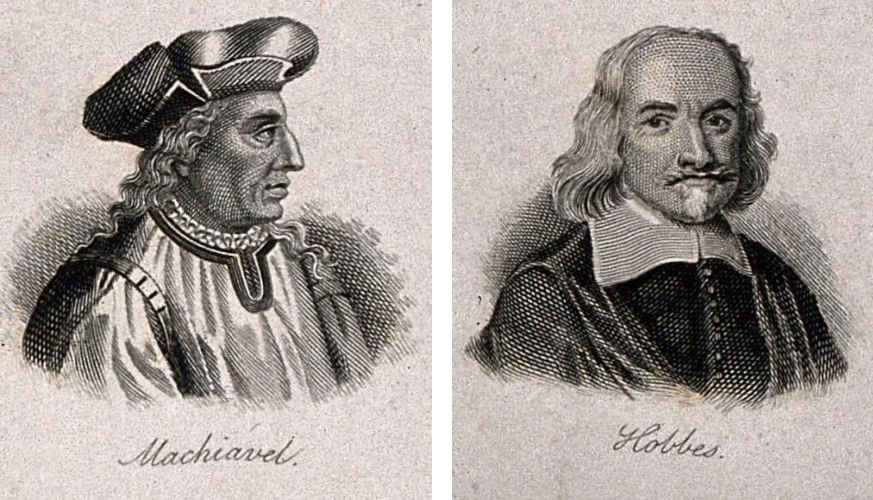
Machiavelli and Hobbes [details from ‘Twenty portraits of famous men’ an engraving by J.W. Cook, 1825]
IMAGE LINKED: wellcome collection Attribution 4.0 International (CC BY 4.0)
It is in this natural scenario of inequality and human evil that the Freemason and the noble order of universal Freemasonry arises and is born, whose mission is to seek the awakening of consciousness in its initiates, motivating them to become thinkers, free thinkers, to that through their individual and particular actions, they intervene positively in the profane world.
One of the missions of the Mason in the profane world is to work towards the perfection of equality and equity, in such a way that there are no other differences between men than merit and demerit. Diogenes (c. 404-323 BC) would say:
“I never envied the wealth of a man, nor did I feel inferior to him. I only recognized superiority in those who surpassed me in virtues and wisdom.”

Diogenes, sitting in front of his barrel and being offered whatever he wants by Alexander the Great, asks Alexander to step aside so that he can see the sun. Etching by S. Rosa.
IMAGE LINKED: wellcome collection Attribution 4.0 International (CC BY 4.0)
A Mason must always bear in mind that the tools that are given to him by his lodge – square, compass, ruler, level, plumb line, lever, among others – mitigate inequality, but do not destroy it, since equality will never be absolute between men, because in inequality is the wise and severe calculation of nature for the necessary harmony and balance of the cosmos.
Therefore, aware of the principle of correspondence between equality and inequality as a natural law, it can be said, following the principles of the Grand Lodge of Chile, that:
… equality does not indicate that we should all be equal, eliminating the beauty of diversity, variety and plurality; on the contrary, in equality it stands out as equanimity in the face of rights, opportunities and duties.
In this way, in the Freemasonic Order all the brothers are on an equal footing, not recognizing social hierarchy or fortune, equal rights and opportunities are recognized for the humble and the powerful in all our actions both inside and outside our temples.
For its part, equity, a term that comes from the Latin Aequitas atis – equality of mind – and from the Greek Aequus – equality – is the quality that moves a human being to give each one what they deserve, without exceeding or decrease.
In this sense, equity is perfected in social justice, that is, in the distribution in equal parts of the minimum and necessary conditions for the realization of man to take place, and in this way, subsequently, continue with the distribution based on the merits of each man.
For example, the concept of equity in Plato (427-347 BC), refers to distributive justice, since for him one of the aspects of justice within the State consists of the distribution of honors, fortune and all the advantages that the members of a state can reach, depending on their merits.
Thus, the political man endowed with prudence and wisdom – virtues typical of every good Mason – will proceed through a prudent and moderate interpretation of the law, adapting the norm, and his action, to the circumstances of place, time, space and person, is say, to the specific case.

Aristotle – from The legacy of Greece / essays by Gilbert Murray, W.R. Inge, J. Burnet [and others] ; edited by R.W. Livingstone
IMAGE LINKED: wellcome collection Attribution 4.0 International (CC BY 4.0)
Then, Aristotle (384-322 BC), created the term epieíkeia – equity – as a virtue, as an equidistant point between two extremes, the middle being the place of true justice, in this way, equity is kept next to the law, correcting and completing it.
Aristotle postulates that equity commands to settle disputes through negotiation and not through force, which prefers arbitration to litigation; invites us to be compassionate with human weakness, to think less about the laws than about man.
To explain his position, Aristotle proposes the example of the stones used to build the walls of Lesbos, a Greek island located in the Aegean Sea, famous for being the homeland of Sappho, the ancient poet whose poems described her passionate love towards her companions, which gave rise to the modern term ‘lesbianism’.
Well, going back to the example of Aristotle, on the wall of Lesbos, there are uneven stones and, therefore, the rule that measures them must be versatile.
That is to say, it is the rule that adapts to the stones and not the other way around.
Hence it affirms that if the law is fair, the proper application of the epieíkeia is even more fair.

Aristotle’s example of ‘uneven stones’ and ‘versatile rules’ was inspired by the walls he saw in Lesbos – he lived in Mytilene for several years.
Image: Castle of Mytilene, Island of Lesbos. By ProtecTOR – Own work
IMAGE LINKED: wikimedia Attribution 4.0 International (CC BY 4.0)
In Freemasonry, the practice of epieíkeia allows positive discrimination, adapting the consequences of the Law to the circumstances and uniqueness of each of the brothers, in such a way that the intelligent work of the Freemason will consist in perfecting the graduation of personal merits, both in the lodge and in the profane world, in such a way that in the construction of the great work of the World, work is assigned to each one according to their capacities and conditions in art.
In short, equality and equity are principles that express universality, this means taking into account all the interests and needs of human beings, thus establishing, for example, in the Universal Declaration on the Human Genome and Human Rights of UNESCO (1997), that:
“The declaration develops the principle of equality, justice and equity, affirming that the fundamental equality of all human beings in dignity and rights must be respected, in such a way that they are treated with justice and equity.”
However, a Freemason must always bear in mind that, in theory, equality and equity are two closely related, but distinct principles, since equity introduces the ethical or justice principle into equality, since, if there is a society that applies equality in an absolute way, it would be an unjust society, since it does not take into account the existing differences between people and groups, that is, inequality as a natural law necessary for the harmony and balance of the cosmos that, in turn, evolves and is perfected in equity.
Even if you take the time to search the words equity and equality in the dictionary, you might walk away thinking they mean the same thing.
Merriam-Webster defines equitable as “dealing fairly and equally with all concerned,” and equal as “of the same measure, quantity, amount, or number as another.”
However, much like systemic and systematic, the two words (and their derivatives) can’t be used interchangeably.
– Ellen Gutoskey
Further Reading:
Article – ‘What’s the Difference Between Equity and Equality?’ Ellen Gotoskey, Mental Floss, June 2020
https://www.mentalfloss.com/article/625404/equity-vs-equality-what-is-the-difference accessed 26/10/2021
Feature Image: “Interaction Institute for Social Change | Artist: Angus Maguire.”
links: interactioninstitute.org and madewithangus.com
Article by: Carlos Francisco Ortiz

Carlos was initiated in 2015 in Equality Lodge No. 88. Joined Fraternal Action Lodge No. 42 in 2018. (under the regular Grand Lodge of Chile)
During his university life, and before receiving Masonic light, he participated in the reorganization and foundation of Clans of the Youth Fraternity. Alpha Pi Epsilon.

Designing Social Equality
By: Mark Foster Gage (Author)
In Designing Social Equality, Mark Foster Gage proposes a dramatic realignment between aesthetic thought, politics, social equality, and the design of our physical world.
By reconsidering historic concepts from aesthetic philosophy and weaving them with emerging intellectual positions from a variety of disciplines, he sets out to design a more encompassing social theory for how humanity perceives its very reality, and how it might begin to more justly define that reality through new ways of reconsidering the built environment.

Equality & Equity
By: David F. George (Author)
EQUALITY & EQUITY: Today’s situation in the US, UK and other multicultural countries – is a detailed, must-have guide to understanding and overcoming inequality in multicultural countries.
Inequality has caused severe harm to humanity. It doesn’t matter how much we refuse to admit to it; it’s happening everywhere around us. Although many see it as a minor issue, its effects on the world at large prove otherwise.
This project is Ideal for everyone in general who wants to understand and get past this disastrous vice for the betterment of our world. It explains everything on the subject matter to the very roots.
Renowned and experienced experts highly recommend this book to help achieve your GOALS of tweaking your mindset to contribute to the development of the world by getting past inequality.
This book helps you in several ways. In it, you find detailed insights that:
• Help you understand and recognize inequality.
• Exposes you to the beauty in achieving GLOBAL EGALITARIANISM.
• Help you build a strong mindset.
• Emphasizes and satisfies much of your curiosity on the topic.
• Gives you a proper understanding of historical data on inequality in multicultural countries.
• Teaches you how to overcome inequality and how doing so will benefit everyone greatly.
• Teaches you the concept of EQUITY and its application.
This book is your access key if you want to make the world a better place!
Recent Articles: by Carlos Francisco Ortiz
 Universal Freemasonry, beyond its particular and different rites and rituals, is an esoteric school itself since there can be no Freemasonry without esotericism. |
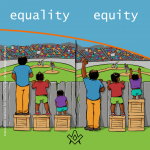 The difference between equity and equality? Equality means providing everyone with the same amount of resources regardless of their needs. Equity is when resources are shared based on each person needs. |
 Discover how the Grand Lodge of China escaped the power of communism. |
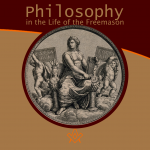 Philosophy in the Life of the Freemason Before the dark night of dogmatic thought, philosophy is the dawn of man, and the light for the Mason in his search for truth. |
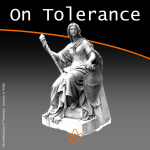 Tolerance is understood as respect for the ideas, beliefs, and practices of others when they are different or contrary to one's own. |
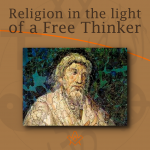 Religion in the light of a Free Thinker Every Mason is a sincere seeker of light, of all light that allows him to advance in his search for truth. |
 Life is shadow, death is light. We live in darkness and we die in the light - read on to learn more about 'a Mason's thought about death'. |
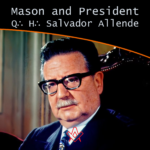 A Mason betrayed - the tragic story of President Salvador Allende. |
 The Mason and his Consciousness of Time Nobody can buy life, life is spent and the expense of life is time. As time goes by, life is spent. |
 Human life is itself trial and error, however, there are errors and horrors, and that is the remarkable difference between the actions of the profane and the actions of the Mason. |
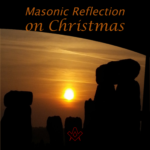 Masonic Reflection on Christmas What is the connection between Freemasonry, Christmas and pagan festivals? |
 Dear Brother - Q∴H∴ Jaime Galté Carré |
 Development of the Emulation Ritual Relevant historical background in the evolutionary development of the Emulation Ritual |
 What is Retejador? And why is it so important? |
 The Dream After the Initiation The dream, in a profane sense, is understood as a biological state or condition, as that which is an integral part of daily life |
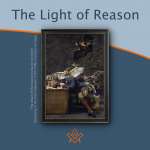 How does man think to himself and think of the universe |
masonic knowledge
to be a better citizen of the world
share the square with two brothers

click image to open email app on mobile device
Tubal Cain
Masonic Aprons NFT
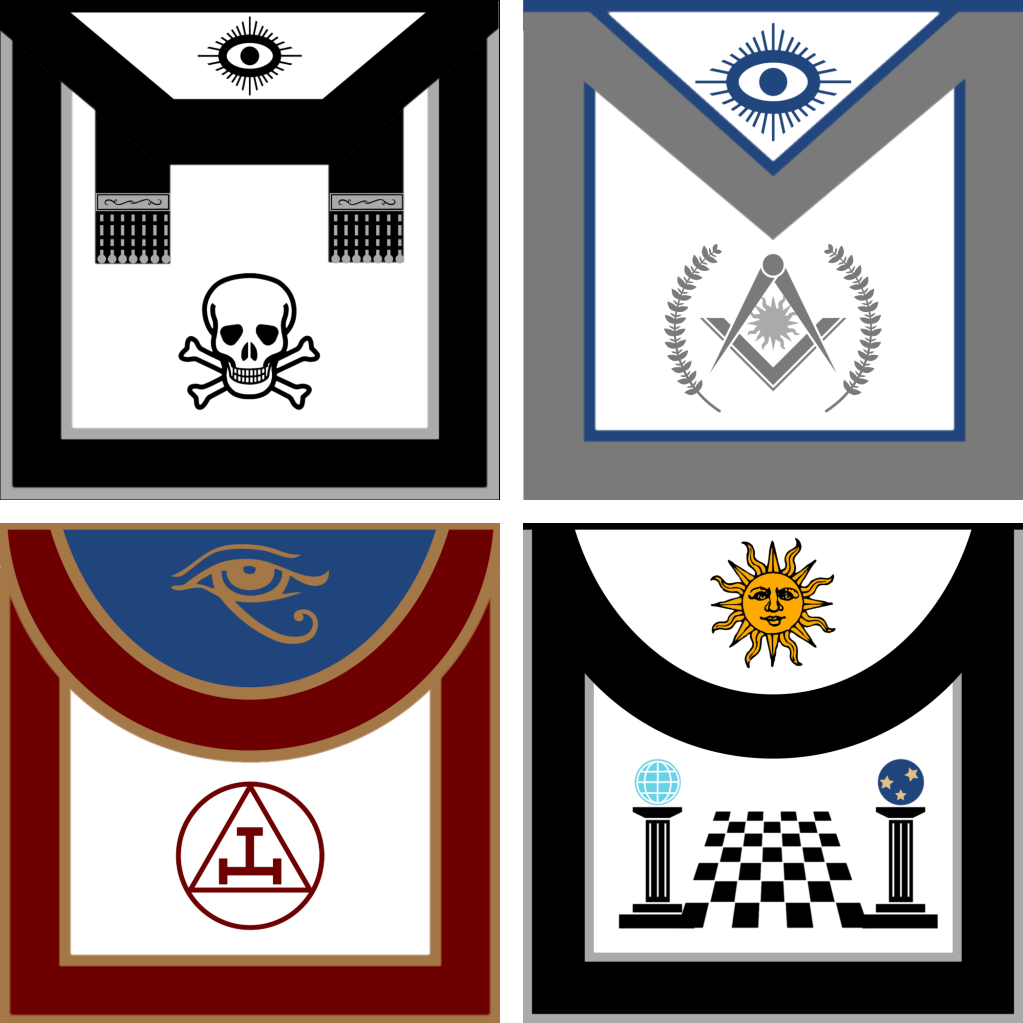



Each Tubal Cain Masonic Apron NFT JPEG includes a full size masonic apron and worldwide shipping
